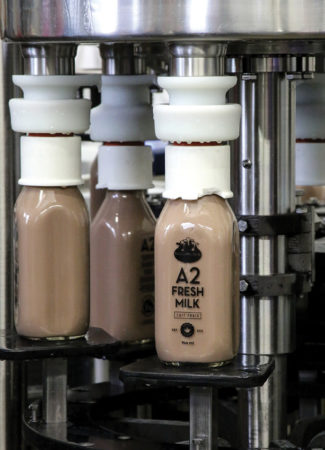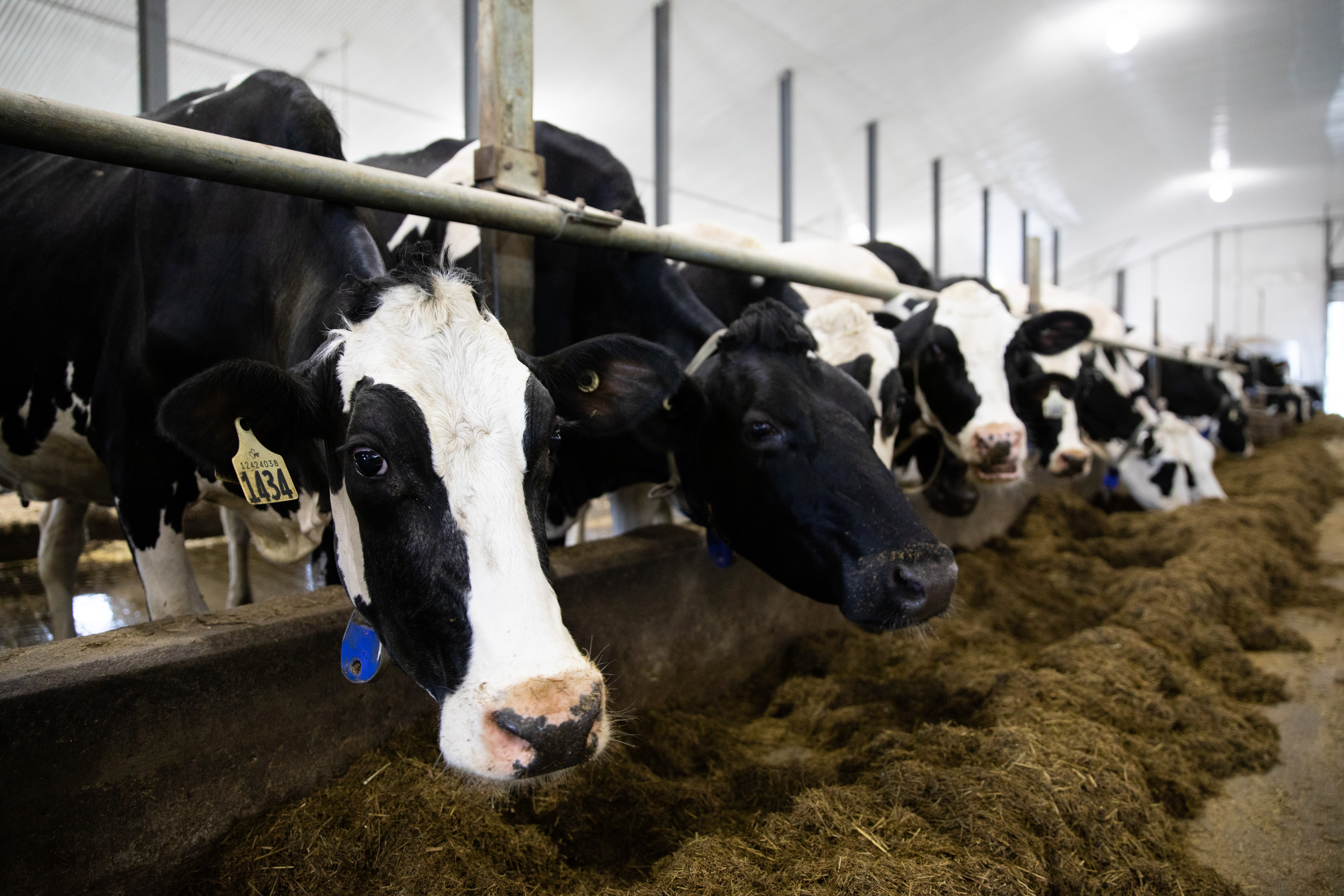Is A2 Milk the Next Big Thing in Dairy?

A2 milk has been on grocery store shelves for more than two decades now and is increasing in popularity. A2 milk is a type of cow's milk that differs from regular milk in its protein composition but can be made into the same products as A1 milk.
What is A2 Milk?
It is a variety of cows' milk that mostly lacks a form of beta-casein proteins called A1 and instead has mostly the A2 form. Caseins make up about 80% of the total proteins of cow’s milk, while the beta-casein makes up about 37% of the total caseins. Beta-casein makes up about 30% of milk's protein.
.jpg?width=292&height=438&name=056A0644%20(2).jpg) There are two common beta-casein variants in cow's milk, A1 and A2. A2 milk lacks the beta-casein proteins known as A1, the primary difference between the two is the 67th amino acid.
There are two common beta-casein variants in cow's milk, A1 and A2. A2 milk lacks the beta-casein proteins known as A1, the primary difference between the two is the 67th amino acid.
Producing A2 milk depends on the cow's genetics, while certain breeds are more likely to produce it. Cows with the highest chance of having the A2A2 gene are Jersey, Guernsey, Normande, and Brown Swiss.
Cows aren’t the only animals whose genetics are made up of mainly A2 beta-casein. Yaks, donkeys, sheep, and goats are just a few animals that can also produce A2 milk.
Product Growth
The popularity of A2 milk all started due to the creation of The a2 Milk Company. The company was founded in New Zealand by Dr. Corran McLachlan, who led in researching health effects around A1, and Howard Paterson, who was involved in the dairy industry. The company commercialized a genetic test that determines if a cow produces A1 or A2 milk.
The a2 Milk Company entered agreements with Australian farmers to produce only A2 cows. The company later expanded into other markets outside of Oceania, like the United States and China. The product is priced higher than regular milk and is marketed as a specialty food item.
The product's popularity came from the health claims marketed by The a2 Milk Company, like easier digestion for those with lactose intolerance. A few studies have found that 25% of people are sensitive to one of the proteins released during the digestion of A1 milk. Therefore, digesting A2 milk is easier for those who are lactose intolerant.
As the product grew in popularity, A2 milk has experienced growth with companies producing fluid milk and other dairy products.
Expected Market Growth
The market for A2 milk is expected to grow significantly over the next seven years. According to a report by Polaris Market Research, the global market share and size was valued at $1.87 billion U.S. in 2021 and is expected to grow to $4.83 billion by 2030. Sales are expected to grow in North America by 18.6% between 2022 and 2027.
Between 2019 and 2020, The a2 Milk Company nearly doubled its U.S. revenue due to increased brand awareness. The company's 2022 annual report stated that it saw revenue growth of 18.9%.
Based on market demand and forecasting, A2 milk has the potential to be a valuable addition to any product line.
-1.png?width=2649&height=724&name=MM%20Logo%20-%20Horizontal%20(Digital%2c%20Png)-1.png)
.png)
